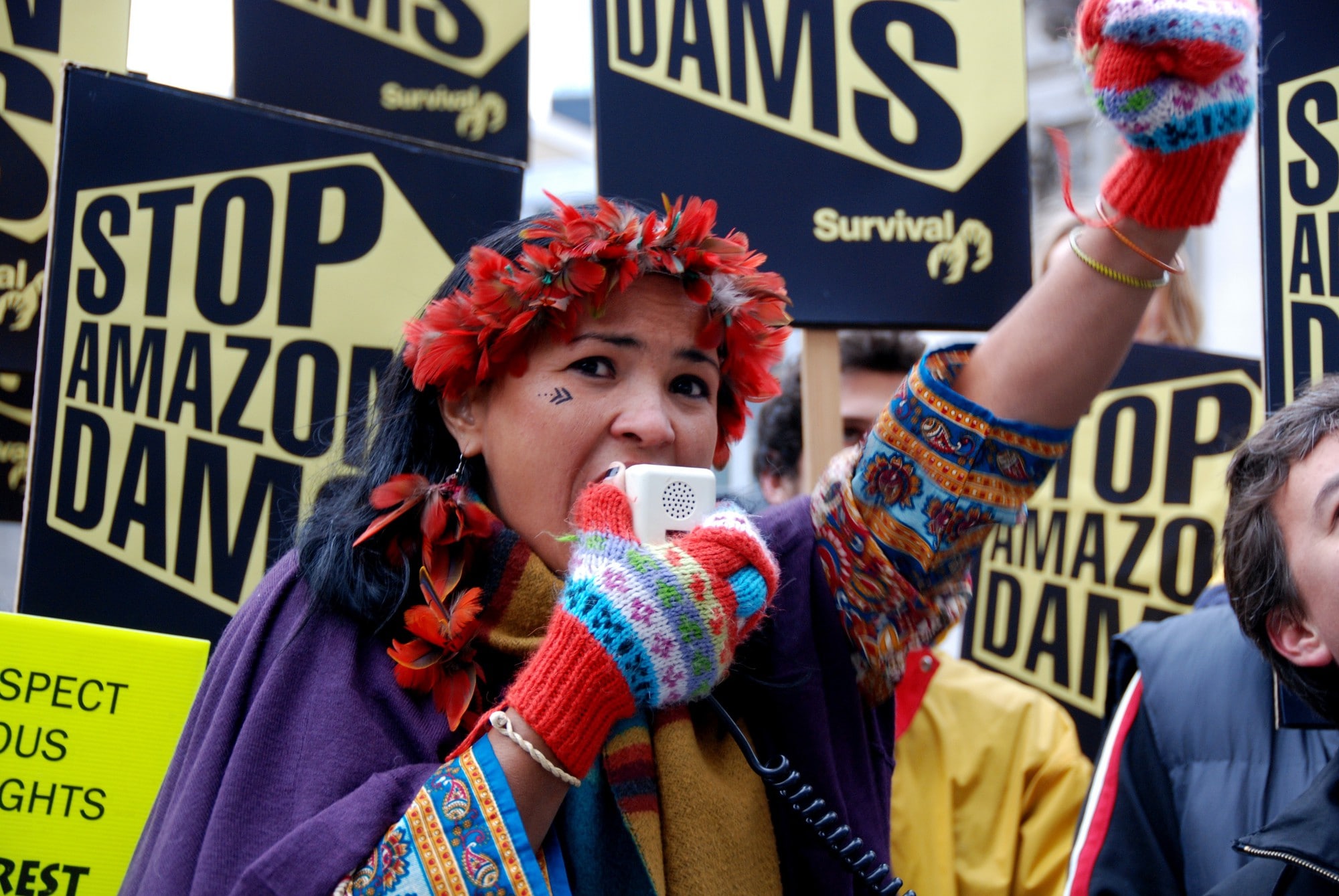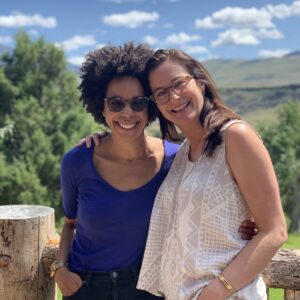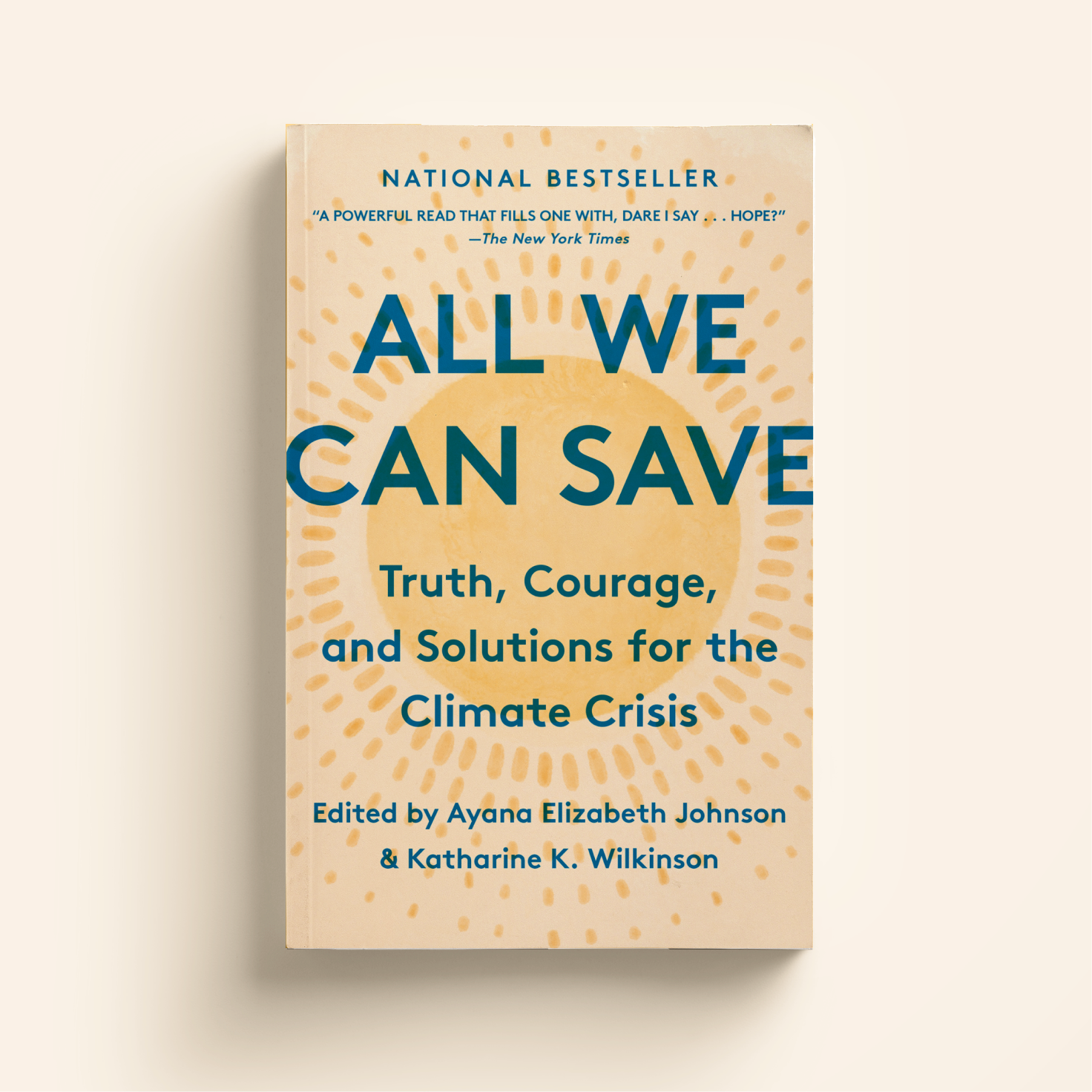Dr Katharine Wilkinson: The climate crisis is a leadership crisis
The author, teacher and co-founder of The All We Can Save Project discusses gender inequality, the power of culture, the battle of our imaginations, and the good and the bad of net zero commitments.
By Charlotte Owen-Burge | July 21, 2021
Best-selling author and acclaimed TED speaker Dr Katharine Wilkinson pauses and takes a large sip of coffee. I’ve just asked her where she thinks it’s all gone wrong. It’s a loaded question for 9am on a Monday morning in Atlanta, Georgia, where she speaks to me from.
After a moment, she replies: “For dominant society there has been a divergence from the profound interconnectedness of life on this planet. Where we are in this moment is about reclaiming that connection, finding our rightful role as participants in life force, as collaborators and helpers.”
It’s a problem, she says, that’s rooted in the global economy – “constructed in some sense from an understanding of connection, supply linked with demand, yet not at all understanding it in reality. I think it is that fragmentation, and its extractive nature, that is at the crux of the challenge that we face.”
Not all humans have lost this connection, of course. Wilkinson reminds me of the startling fact that Indigenous peoples – who live on 5% of the world’s land area – are guardians to 80% of the world’s biodiversity. And yet, these communities are still fighting for Free, Prior and Informed Consent – in short, the ability to say yes or no, from the outset, to development on their ancestral land or to using their resources.

Loggers, miners, and oil companies are still destroying tribal lands, lives and livelihoods across the globe. Image: Survival International.
For Wilkinson, equity challenges are at the heart of the planetary challenge. “In the climate space, in particular, the kaleidoscope has been defined for a long time by a limited set of lenses, at least in terms of who’s shaping public discourse, who’s shaping the agenda for change, who’s determining what solutions are, and how we should go about achieving them,” she explains.
A key road to righting this wrong, she believes, is addressing gender inequality. In her famous TED Talk,which has been watched 2 million times, she says: “the primary link between women, girls and a warming world is not life but death.”
Climate change affects women and girls most acutely because it exacerbates the existing outcomes of entrenched gender inequality. They are more likely to be dependent for their food and income on the land and natural resources, which are being threatened, and when the worst effects of climate change make land-based work impossible, women are often less able than men to turn to alternative forms of work.
Nine in 10 countries worldwide have laws impeding women’s economic opportunities, such as those which bar women from factory jobs, working at night, or getting a job without permission from their husband.
But this isn’t a ship, she says, “we’ve just been trying right since the start of the Industrial Revolution…we are actually dealing with something that started much earlier.”
Wilkinson recalls a conversation she recently moderated with lawyer and author Sherri Mitchell, a contributor to the bestselling anthology, All We Can Save, which she co-created with Dr Ayana Elizabeth Johnson. “Sherri took us way back in time to 3000 BCE, when the first commodities exchange markets arose. And the commodity on that market was women.”

Founders of the All We Can Save Project, Dr Ayana Elizabeth Johnson & Dr Katharine Wilkinson.
Another perspective from Mitchell has stayed with her since she first read her book Sacred Instructions: the balance of masculine and feminine energies “that live within all of us, regardless of our gender identity.”
Feminine energy, explains Mitchell, is about heart-based wisdom. And masculine energy is about action in the world. “And when you have action in the world, in the absence of heart-based wisdom, you end up in a real mess.”
This distinction, according to Wilkinson, is helpful because it “points to dynamics that are critical antidotes to where we find ourselves in this moment: care, community, creativity, compassion and celebration, all of which help grow that sense of connectivity among us and between us.”
She acknowledges that this is not just a case of masculine = men, and feminine = women. “On a more tactical level there is,” she says, “a growing body of research that shows us that when women are present and leading in at least equal numbers, the outcomes for the planet are better.”
The weight of evidence to support this is overwhelming. From “local to national level, there’s correlation between the political, social and economic empowerment of women and lower emissions,” she says.
“There is evidence that this is not just something that sounds nice in theory but that, in fact, if we want to arrive at the most just and life-giving version of the future, we have to have greater gender balance in leadership to get us there. And I think the same could also be said for better balance along the lines of race, along the lines of class, global north and global south.”
So does the challenge before us hinge on an equal society, I ask. “In a significant part, the climate crisis is a leadership crisis,” she replies.
“Traditionally we’ve heard it described more as: the climate crisis is a technology crisis or the climate crisis is an economic externalities crisis. But when we consider how much people in power have known, for as long as they have known it, it is hard not to see how there are fundamental failures of leaders and leadership that have gotten us into this mess and also made it so very hard to get out.”
“I think that we do have models of political leadership for what it looks like to be truth telling, courageous, visionary and committed to solutions. And I think it’s fair at this point to expect that from our political leaders, and from corporate leaders, who are still, to my mind, talking in aspirations, or supposedly promised commitments, that don’t always have the necessary plans or heft behind them.”
“I really do believe that we have to address who is leading, and how we are leading, to usher in transformation more quickly and more fully than we’re seeing right now. I also think that it is about many more people taking their place within this ecosystem of transformation and breaking the notion that climate leadership belongs to experts with PhDs, or climate leadership belongs to elected officials, or climate leadership belongs to corporate sustainability officers. These are all helpful, one can hope, players in the ecosystem, but just by virtue of being human, alive on Earth in this moment, we all have a call to participate in this incredible planetary healing endeavour that is before us.”

One of the things that’s “animating and motivating” Wilkinson’s current work with The All We Can Save Project “is creating a sense of invitation, welcoming and support to have more folks figuring out how to be of use and bring them into climate work in some way.”
As part of this mission, she recently created All We Can Save Circles, which are about building both deeper dialogue around the climate crisis and community around solutions.
Signs suggest things are slowly starting to change. More authors are writing about the climate crisis and we’re beginning to see relatively more factual coverage on TV, but for Wilkinson, much more should be done, faster.
“There has been under attention to the power of culture, and to the necessity of cultural change, to create the space and the conditions for political and policy change. There is an incredible role for storytellers and culture makers, of all stripes, in this moment.”
For example, there’s much more potential, she says, “to bring climate into screenwriting for film and TV. Because so often when you look at a new feature film or a new programme, it still feels like we’re living in a climate change free world. It’s not showing up in the context and the shaping of the characters and their challenges. And, of course, that couldn’t be further from the truth.”
“We are more adept at imagining apocalyptic futures than we are imagining a world that we might actually want to live in. I think there’s sort of an imagination barrier that is at work – we just can’t see it. With this, it becomes very hard to muster the motivation to keep fighting against a possible future rather than for a possible future.”
So where do net zero targets fit into this conversation? “With real plans, resources, talent and teeth behind them, they can be a helpful North Star,” says Wilkinson, highlighting carpet company Interface as the epitome of corporate climate pledges. Under the pioneering leadership of the late Ray Anderson, the company in 1994 made a public commitment to go beyond net zero to become restorative by 2020, eliminating any negative impact the company might have. Now, they have taken on the subsequent, broader mission of “a climate fit for life.”
So often when you look at a new feature film or a new programme, it still feels like we’re living in a climate change free world
Wilkinson, based on the Interface example, says she believes in the power of these pledges, but is concerned “we’re seeing examples of where it’s probably much more words on the page than an urgent commitment to transformation.”
In a recent episode of her Podcast, A Matter of Degrees, she explores what she calls “the problem of prestige”, where companies with pledged climate commitments are still “entangled in the fossil fuel industry”.
“We see some high-profile elite employers, specifically professional services firms, whether that’s law firms, advertising and PR agencies or consulting firms providing a shadow workforce to the fossil fuel industry. They help with critical things such as legal defence, business strategy and greenwashing campaigns: things that are critical lifeblood for the fossil fuel industry.”
“The same,” according to Wilkinson, “goes for the kind of lobbying and donations some companies are engaged in, even with net zero commitments. We start to see some real contradictions and divergence that make you ask, well, what is the real commitment here?”
With 100 days to go until the UN’s critical climate summit COP26, I ask her what outcome she would like to see. “If we want to get to the best possible outcomes, we need to have the best possible inputs. And I think that one of those inputs is having strong gender representation at COP26. We need to see gender balance in COP leadership, within delegations, and in particular, ensuring that there is robust representation of women from the global south.”
Reflecting on the task before us, she concludes: “Hopefully we are able to globally muster a spirit about what is possible and what is necessary. To break through those temporal, political constraints to be in service of life. I think we’re in a moment where whatever your context, whatever your resources, whatever your relative power and influence, we need that being leveraged towards the outcome of a liveable world.”
Dr Wilkinson is an author and co-host of the podcast A Matter of Degrees. Her books on climate include All We Can Save, The Drawdown Review, Drawdown, and Between God & Green. Time magazine featured Dr. Wilkinson as one of 15 “women who will save the world”.
Dr Wilkinson and Dr Johnson’s bestselling anthology All We Can Save: Truth, Courage, and Solutions for the Climate Crisis is available in paperback from July 20 2021. The book features a collection of 41 essays, 17 poems and illustrations from women leading on climate.




